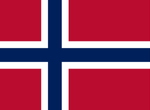
Call 0330 880 3600 Calls may be monitored or recorded. Opening Times.
- TRAVEL INSURANCE
- COVID-19 COVER
- More Options
- Help & Advice
- Existing Customers

Call 0330 880 3600 Calls may be monitored or recorded. Opening Times.

Need help?
UK Customer Services0330 880 3600*
Open Monday to Friday 9:00am to 6pm, Saturday 8:30am to 4pm and closed Sundays.
*Calls are recorded for training and quality purposes.

Official name: Bouvet Island
Capital city: None
Languages spoken: None (uninhabited)
Population: Uninhabited
Currency: None
Time zone: GMT+1 (aligned with mainland Norway)
Driving side: N/A
Climate: Sub-Antarctic, dominated by glaciers, fog, and heavy cloud cover
Note: Bouvet Island is not open to tourism. Access is restricted to scientific and research purposes only.
Bouvet Island is a remote sub-Antarctic territory in the South Atlantic Ocean and is considered the most isolated island on Earth. Over 90% of its surface is covered by glaciers, with an inactive volcano at its centre. Declared a Norwegian nature reserve in 1971, it remains strictly protected and is visited only by small scientific research teams.
Bouvet Island is dome-shaped, heavily glaciated, and surrounded by steep coasts and rough seas, making access extremely difficult. The only recognised landing point is Nyrøysa, a rockslide area that also hosts a Norwegian weather station. The climate is harsh and Antarctic in nature, with fog, cloud, and persistent cold. Average temperatures range between -5°C and 4°C.
Bouvet Island is not open to general travel. Only Norwegian-approved scientific expeditions are permitted, and there are no transport links, accommodation, or visitor facilities. Access is strictly limited to researchers such as biologists and geologists.
There are no embassies or immigration offices on Bouvet Island. Entry is controlled by the Norwegian government, and permission is granted only to authorised research teams. All arrangements must be coordinated through Norway.
The island has no economy, no commercial activity, and no currency. There are no banking, exchange, or financial services.
There are no health facilities on Bouvet Island. Any emergencies require evacuation by ship or helicopter. For the very small number of researchers who may visit, comprehensive travel insurance with medical evacuation cover is essential.